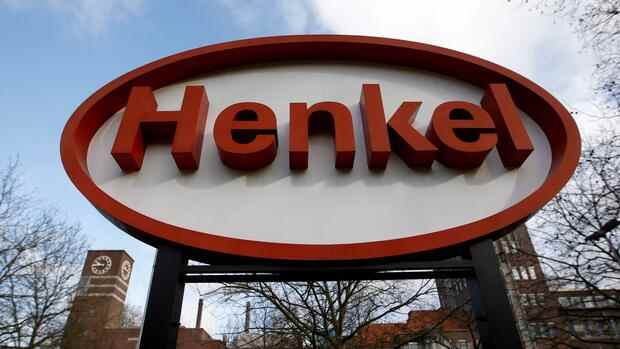The consumer goods group wants to buy back shares for up to one billion euros.
(Photo: Reuters)
Dusseldorf The consumer goods giant Henkel is reorganizing its business. The cosmetics and detergent business is to be merged into one division, announced the producer of the Persil detergent and Schwarzkopf hair care products on Friday. The move could bring the portfolio “to a higher growth and brand profile,” CEO Carsten Knobel is quoted as saying in a corporate statement.
The Düsseldorf-based Dax group expects synergies from the merger – and announced that it would be separating employees from both areas, without giving details. You can see synergies in the areas of administration, sales and marketing. The management is in talks with the works council, it said.
Henkel’s cosmetics business has been weak for years. Analysts have repeatedly criticized the fact that this division at Henkel is too small and less profitable compared to competitors such as L’Oréal. Henkel cosmetics sales are stagnating, and the division did not record any organic growth between 2017 and 2020.
Business with brands such as Schwarzkopf or Syoss hair care only accounts for 19 percent of group sales. 35 percent comes from the detergents and cleaning agents business, with Henkel doing the bulk with its higher-margin industrial adhesives division.
Top jobs of the day
Find the best jobs now and
be notified by email.
With the merger, Henkel wants to strengthen its competitiveness against large global competitors such as Procter & Gamble (P&G) or Unilever. “In order to shrink healthily, the merger of the Henkel divisions can make sense,” said a market observer to the Handelsblatt.
However, according to Henkel boss Carsten Knobel, the conversion is not a step towards splitting up into an adhesives and consumer goods company. “The answer is very clear: no,” said Knobel on Friday at an analysts’ conference when asked “We are convinced of the attractiveness of our cosmetics and our detergents and cleaning products business,” he emphasized.
Henkel shares plummet
Henkel intends to complete the reorganization of its businesses by early 2023. The new division, named Consumer Brands, should then have a turnover of around ten billion euros. The group announced that it also intends to part with brands and shops in the cosmetics sector. “The first measures in the beauty care portfolio will already be implemented in the course of 2022.” The magnitude of the sales should be five percent of the turnover of the cosmetics division, i.e. around 184 million euros.
On the stock exchange, investors initially reacted to the announcements with sales. Henkel shares fell by up to ten percent on Friday morning. That would be the largest one-day loss in three years.
The outlook is also likely to be the reason for the fall in prices. In the medium to long term, Henkel has set itself the goal of organic growth of three to four percent per year. So far, the group had aimed for two to four percent. Henkel aims to achieve an adjusted return on sales (EBIT margin) of 16 percent in the future. The outlook is disappointing, said a stockbroker.
Preliminary business figures show that the Henkel Group had sales of a good 20 billion euros last year. The cosmetics division grew organically by 1.4 percent to 3.6 billion euros, the cleaning and detergents division by 3.9 percent to 6.6 billion euros.
The EBIT margin for the entire group was 13.4 percent – well below the value targeted for the future. Henkel had already lowered the targets for this key figure and most recently announced 13.5 percent. At the beginning of 2021, it was still assumed to be 15 percent.
Share buyback with a volume of up to one billion euros
Henkel suffers from rising raw material prices. The markets for commodities and materials are still tense, the group said. When the quarterly figures were presented in the fall, CEO Knobel assumed raw material prices would rise by 10 to 15 percent, an increase that Henkel had not experienced in 15 years.
In addition, CEO Knobel announced a share buyback with a volume of up to one billion euros. This corresponds to around three percent of Henkel’s share capital. “Henkel intends to initially hold the repurchased shares as treasury shares and reserves the right to withdraw them and reduce the share capital accordingly,” it said.
More: Own online shops are rarely profitable – why the cosmetics giants still rely on them

